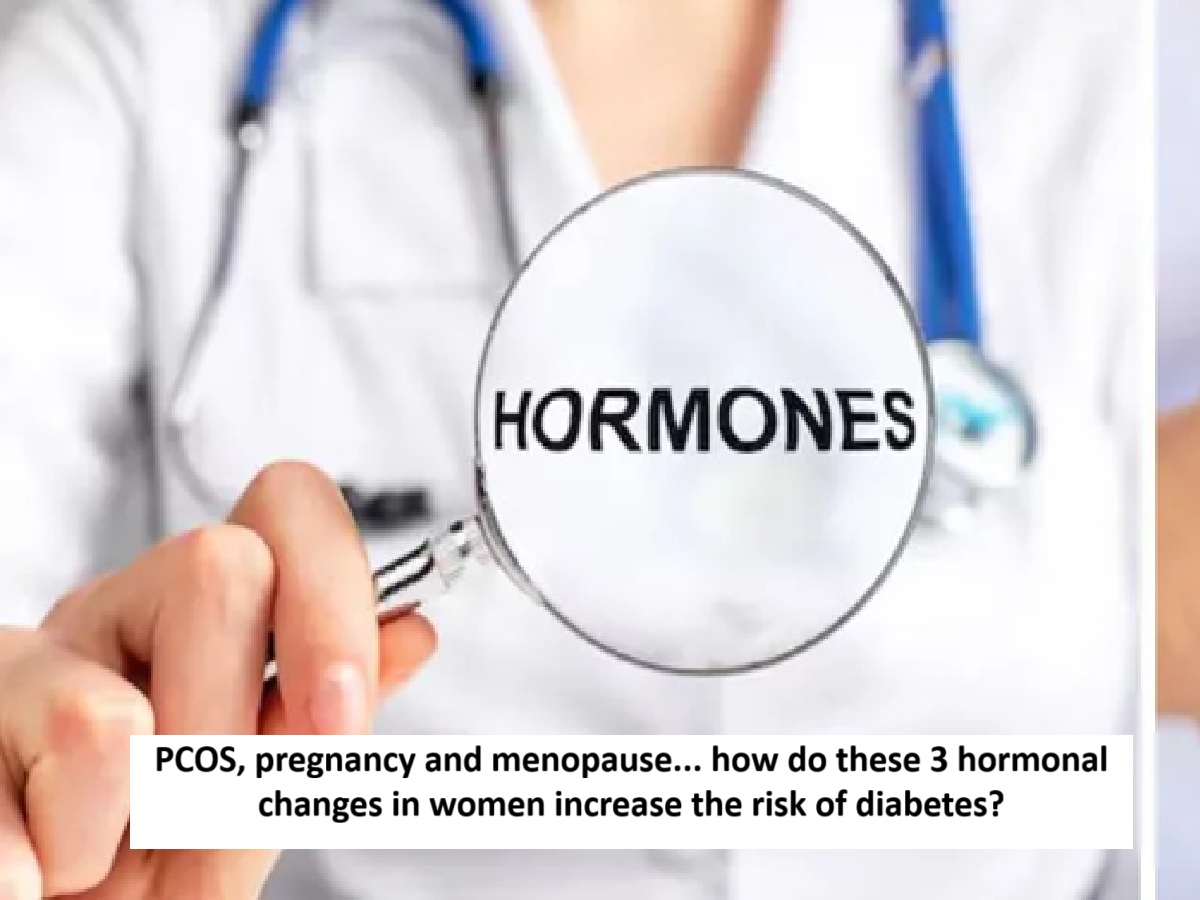
News Topical, Digital Desk : World Diabetes Day 2025: Women's bodies go through many hormonal changes throughout their lives—sometimes due to aging, sometimes pregnancy, and sometimes health issues. These changes not only affect mood and energy, but also have a profound impact on the body's ability to regulate blood sugar.
When hormonal imbalance increases insulin resistance
PCOS (polycystic ovary syndrome) isn't just a problem related to periods or fertility. It can also lead to a condition called insulin resistance, which reduces the body's sensitivity to insulin. In this condition, the body needs more insulin to convert sugar into energy.
This imbalance can gradually increase the risk of diabetes. Therefore, it's important to understand PCOS as a sign that can impact a woman's long-term metabolic health.
gestational diabetes
The changes that occur in the body during pregnancy create different needs than normal. This increases the demand for insulin. If the body is unable to meet this additional demand, gestational diabetes can develop.
If detected early, it can protect both mother and baby, but if ignored, it can prove dangerous. This is why regular checkups and accurate information are crucial during pregnancy.
Decreased estrogen
During menopause, estrogen levels gradually decline. This hormone makes the body more sensitive to insulin. When levels drop, it can:
- Weight gain can happen quickly
- Sugar levels can fluctuate suddenly.
- The body's energy and metabolism may slow down
- All this together makes blood glucose control difficult and increases the risk of diabetes .
Why is there still a lack of awareness?
Although the links between all these hormonal phases and diabetes are well understood, metabolic health in women has not received the priority it deserves.
There are several reasons behind this, such as:
- There has been relatively little research on women's health.
- Hormonal changes are often ignored as 'normal'.
- Diabetes is often treated as a uniform disease, but its symptoms and causes may be different in women.
- Because of this, gender awareness, i.e., understanding different types of health for women, is still limited.
Timely identification is essential
The doctor believes that women need to pay more attention to their changing hormones and the signs they may reveal. Early recognition of conditions like PCOS, gestational diabetes, or menopause can significantly reduce the risk of diabetes.
Hormonal changes that occur at different stages of a woman's life profoundly affect blood sugar. Therefore, it's important to understand that diabetes is not a one-size-fits-all disease.
--Advertisement--

 Share
Share



